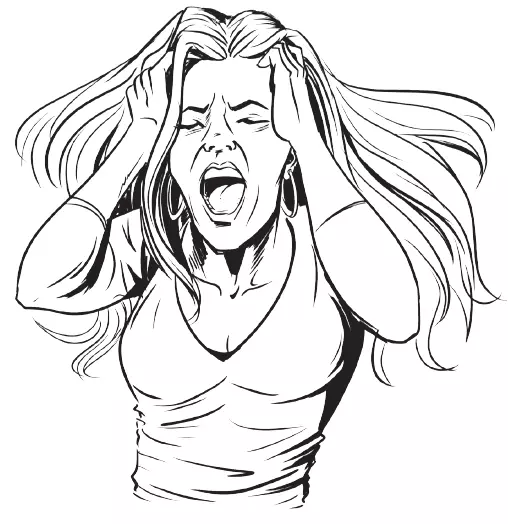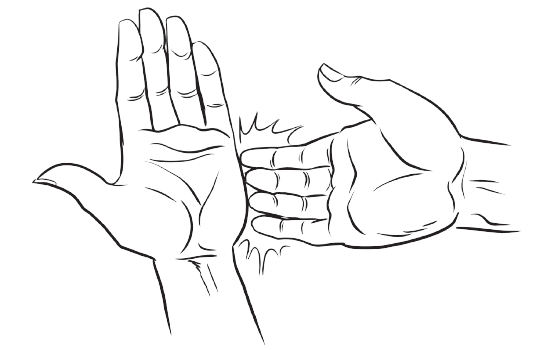What is an Anxiety Attack ?
by Barb Gombosi
If you wonder what is an anxiety attack....well, let me ask you a few questions first:
Have you ever felt
- like you are losing control
- your heart is about to jump of out your chest...

- you have trouble catching your breath like you were just done running a marathon...
- you are shaking like you are on a massage chair,
- you feel like you are going to pass out, and
- you are sweating like it’s hundred degrees outside ?
- Have you ever felt that way unexpectedly and for no apparent reason?
- Or have you felt that way due to a specific reason like getting stuck in a traffic or in an elevator ?
If you answered YES to most of the questions, you have experienced an anxiety attack.
Sometimes people experience anxiety attacks unexpectedly and for no apparent reason and sometimes they experience anxiety attacks for apparent reason.
So, what is an anxiety attack ?
The answer to what is an anxiety attack can be find in its definition from the article “Anxiety Disorders and Anxiety Attacks” written by Melinda Smith, Lawrence Robinson, and Jeanne Segal.
“Anxiety attacks, also known as panic attacks, are episodes of intense panic or fear. Anxiety attacks usually occur suddenly and without warning. Sometimes there’s an obvious trigger - getting stuck in an elevator, for example, or thinking about the big speech you have to give - but in other cases, the attacks come out of the blue.”
Smith et. Al also stated that
“Anxiety attacks usually peak within 10 minutes, and they rarely last more than 30 minutes. But during that short time, you may experience terror so severe that you feel as if you’re about to die or totally lose control.
The physical symptoms of anxiety attacks are themselves so frightening that many people think they’re having a heart attack.
After an anxiety attack is over, you may worry about having another one, particularly in a public place where help isn’t available or you can’t easily escape.”
Symptoms of an anxiety attack include:
- Surge of overwhelming panic
- Feeling of losing control or going crazy
- Heart palpitations or chest pain
- Feeling like you’re going to pass out
- Trouble breathing or choking sensation
- Hyperventilation
- Hot flashes or chills
- Trembling or shaking
- Nausea or stomach cramps
- Feeling detached or unreal
As a mental health professional, I recommend that you seek a professional help if you start experiencing symptoms mentioned above, especially, if those symptoms are happening to you out of the blue and you are experiencing them often.
Another sign that you should seek a professional help is if you start avoiding specific situations due to the feeling of having an anxiety attack or panic attack.
A counselor or a psychologist can help you teach coping skills to help you alleviate your anxiety and to lessen to occurrence of your anxiety attacks.
Knowing what to do in anxiety-provoking events and managing your anxiety at the level where you can still function effectively in your daily activities are desirable outcomes of a therapy.
Barb Gombosi, M.S., LMLP is a Licensed Masters Level Psychologist

